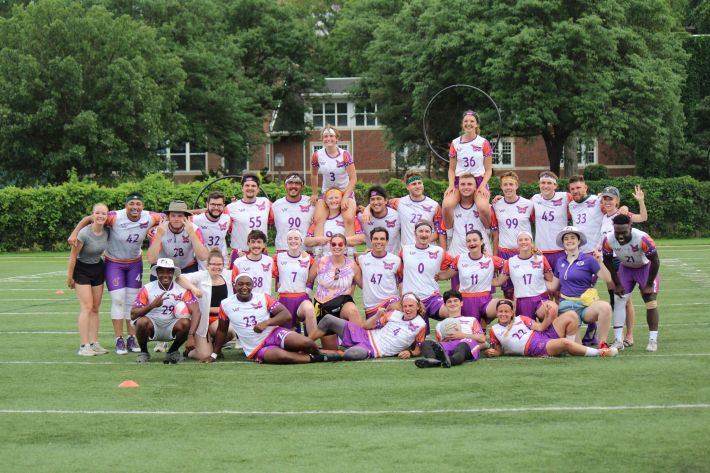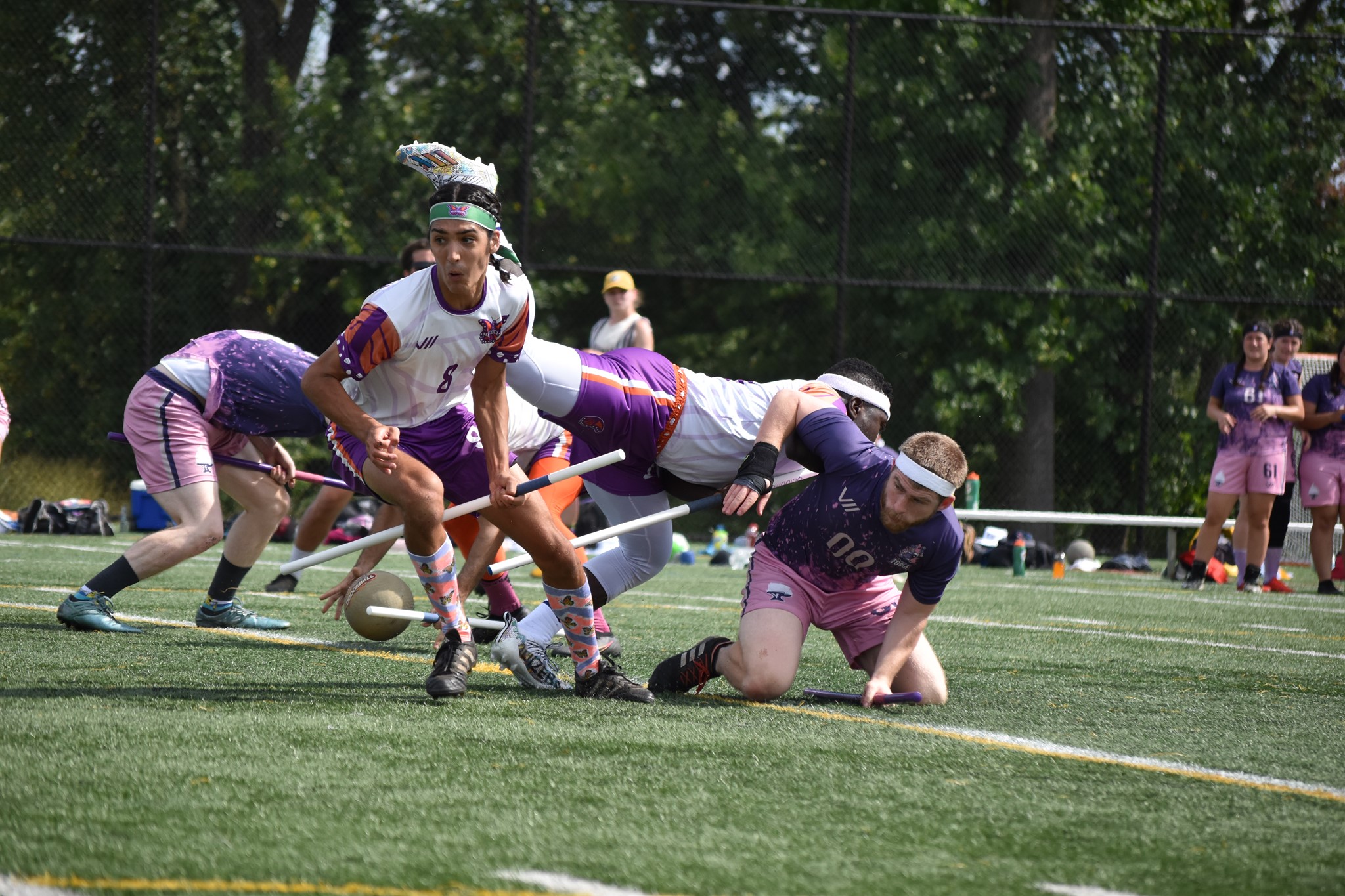While many people enjoy non-traditional sports like broomball or pickleball, some athletes need more magic to get them fired up. Like, literal magic. That’s where competitive quidditch comes in.
For regular muggles, quidditch is a game from Harry Potter, where wizards ride on brooms and chase a flying ball while trying not to get bonked by the opposing team. A real-life version of the game has recently rechristened itself as quadball to distance itself from its fantasy roots—and its very problematic creator.
Jake Dalbey, a chaser with the Minneapolis Monarchs, the official Major League Quadball (MLQ) franchise in Minnesota, has been playing for nearly a decade.
“I have always been a big Harry Potter guy, but that’s not really what drew me in,” he explains. “I went to college at Iowa State, and at the end of my freshman year I wanted to find a sport or some type of intramural where I could compete and stay in shape. Quidditch seemed more accessible than some of the other sports that had more rigorous tryouts, so I picked that and ended up playing on the Iowa State club team for the next three years.”
The appeal, Dalbey says, is that the game combines elements of lacrosse, dodgeball, rugby, and, if you're a seeker, capture the flag.
“It’s not like some sports where you have to be really good at one specific thing,” he says. “There are so many different pieces that even if you’re not great in one area there is still plenty of opportunity for you to play.”
Quadball is also one of the only gender-inclusive contact sports. It follows a “four maximum” rule, which means that there can be no more than four players of the same gender identity on the field at the same time. Players who identify as nonbinary count towards the total number on the field, but don’t count toward a specific gender total.

But there’s an elephant on the field here: As leagues, teams, and athletes strive to be more progressive, the creator of quidditch famously is not. Harry Potter author J.K. Rowling’s transphobic beliefs have caused an upheaval in the sport over the past few years. While Rowling has no issue making a world of elves and magical spells, the idea of a trans woman using a public bathroom is just too much for her to comprehend.
In 2022, both the Major League Quidditch and U.S. Quidditch leagues voted to change their names from quidditch to quadball in order to distance themselves from Rowling.
“Everything that she [Rowling] said in regard to trans people and the LGBTQ community is at odds with what quadball is trying to do,” Dalbey says. “It has always been rooted in equality. The rule that you can’t have more than four people of the same identifying gender on the field has always created a nice atmosphere. It opens it up to a way more diverse group, and it doesn’t just become a boys’ club.”
Dalbey says he has never witnessed any instances of discrimination or transphobia during a game.
“By playing quadball, you’re buying into a certain mindset,” Dalbey says. “No team that I have ever played on has ever had a problem with how players choose to identify, nor has it ever really needed to be discussed. We’re a pretty well self-governed group. If you did make a fuss about something like that, it would be taken care of pretty quickly.”
In 2019, Dalbey joined the Monarchs for their inaugural season. He’s been with the team ever since, bouncing between the main roster and the practice squad. The team practices and plays throughout the summer, traveling to Chicago, Indiana, and Des Moines to compete against other squads throughout the country.
There’s also the Twin Cities Frost, Minnesota's U.S. Quadball team, which practices locally and plays in tournaments from fall through spring. Dalbey is currently on this team as well.
“Van Cleve Park in Minneapolis is our home base, but when it’s cold we have to find indoor facilities where we can reserve time,” he says. “It’s harder in the north because a lot of our ability to practice just comes down to where we can go and who has connections.”
With more players choosing to get on the broom, quadball is starting to shake off its reputation as competitive role-playing, becoming more accepted by athletes and mainstream media.
“You’re seeing more former high school or college athletes getting involved,” Dalbey says. “It’s been on ESPN a few times, and there are more teams popping up in different parts of the country.”
Despite that, Dalbey points out, both the Monarchs and the Frost are always open to new players who want to get involved, regardless of past experience or ability.
“You don’t need to be in great shape or athletically gifted,” he says. “If you’re passionate and you want to learn, that’s all you need.”







